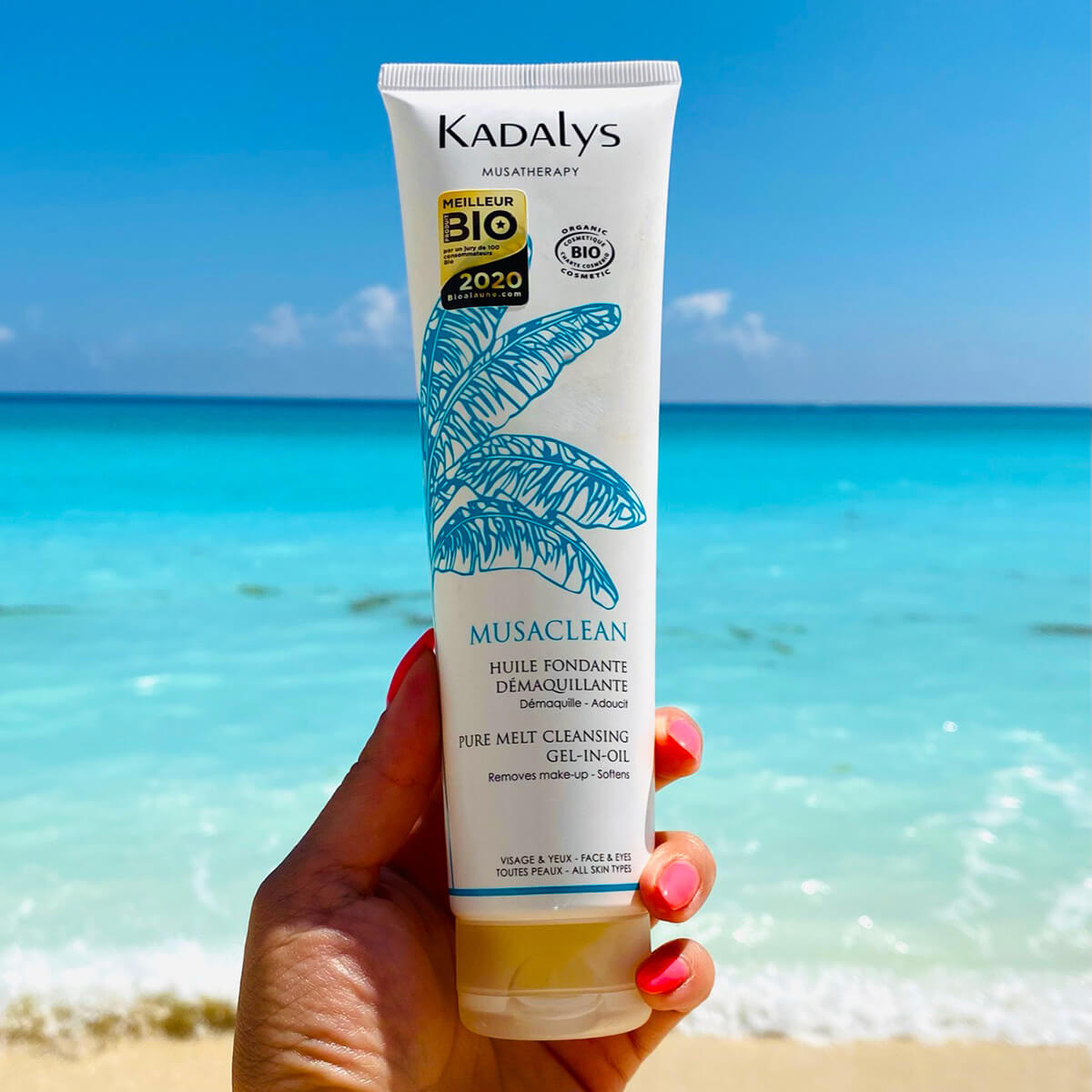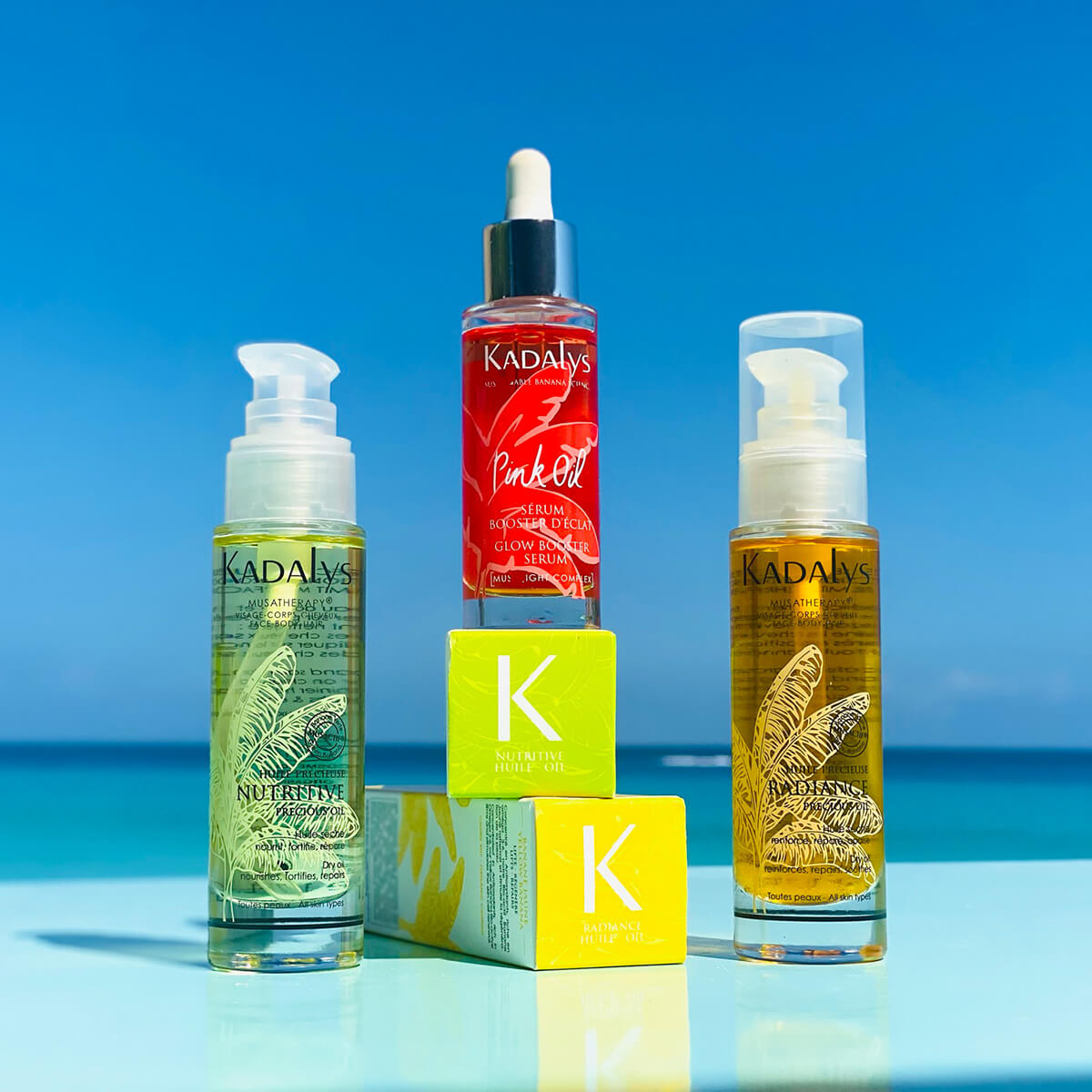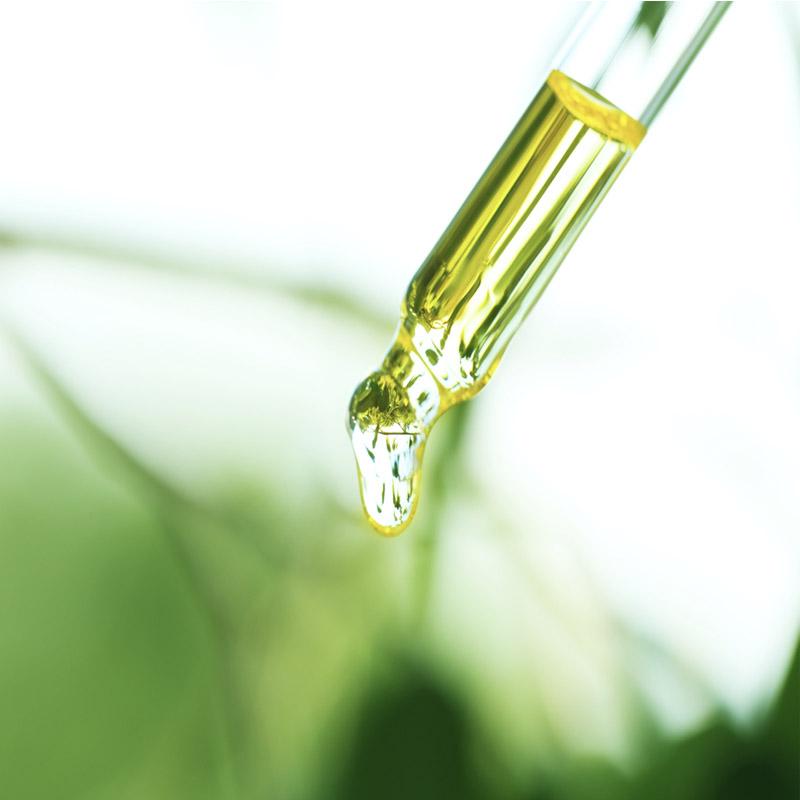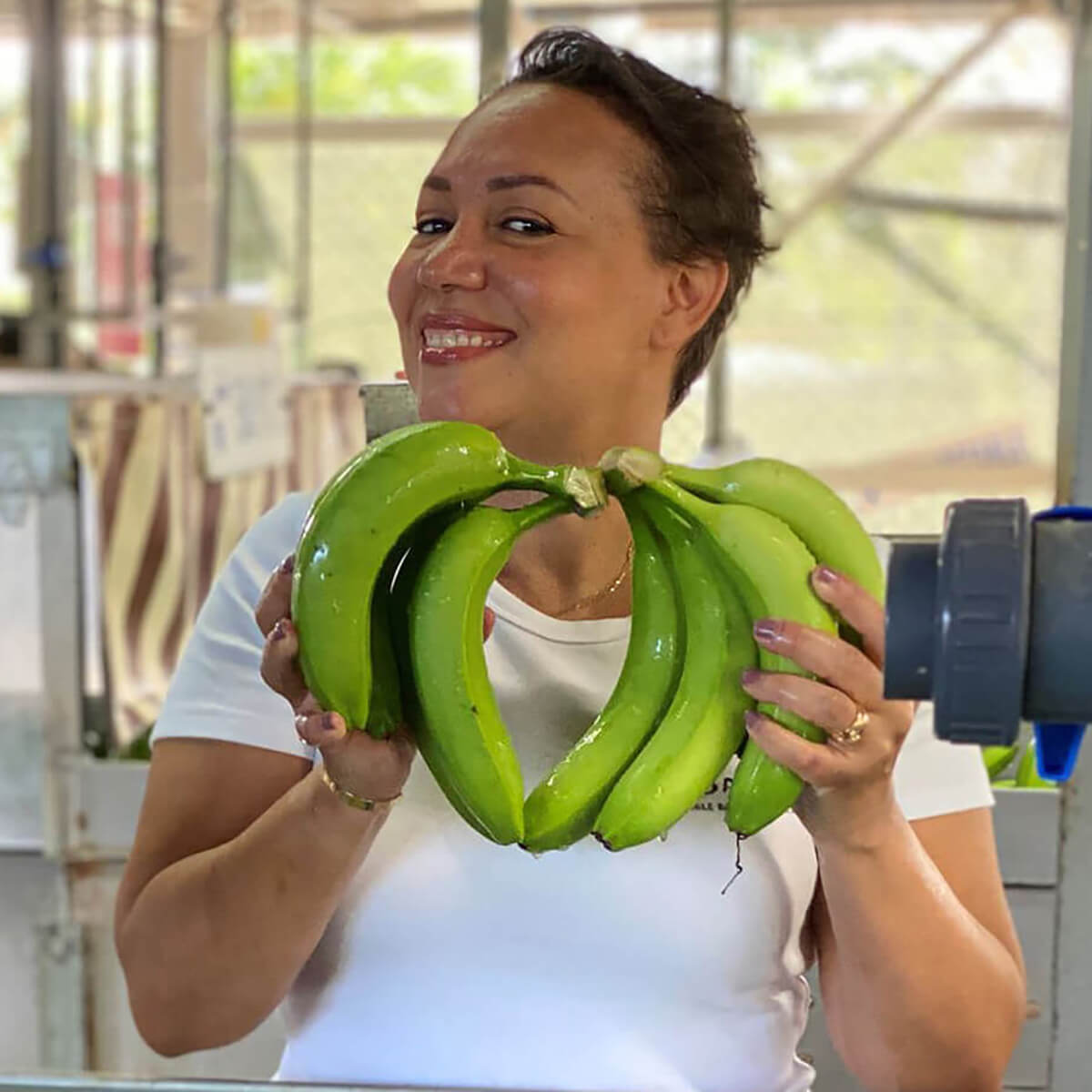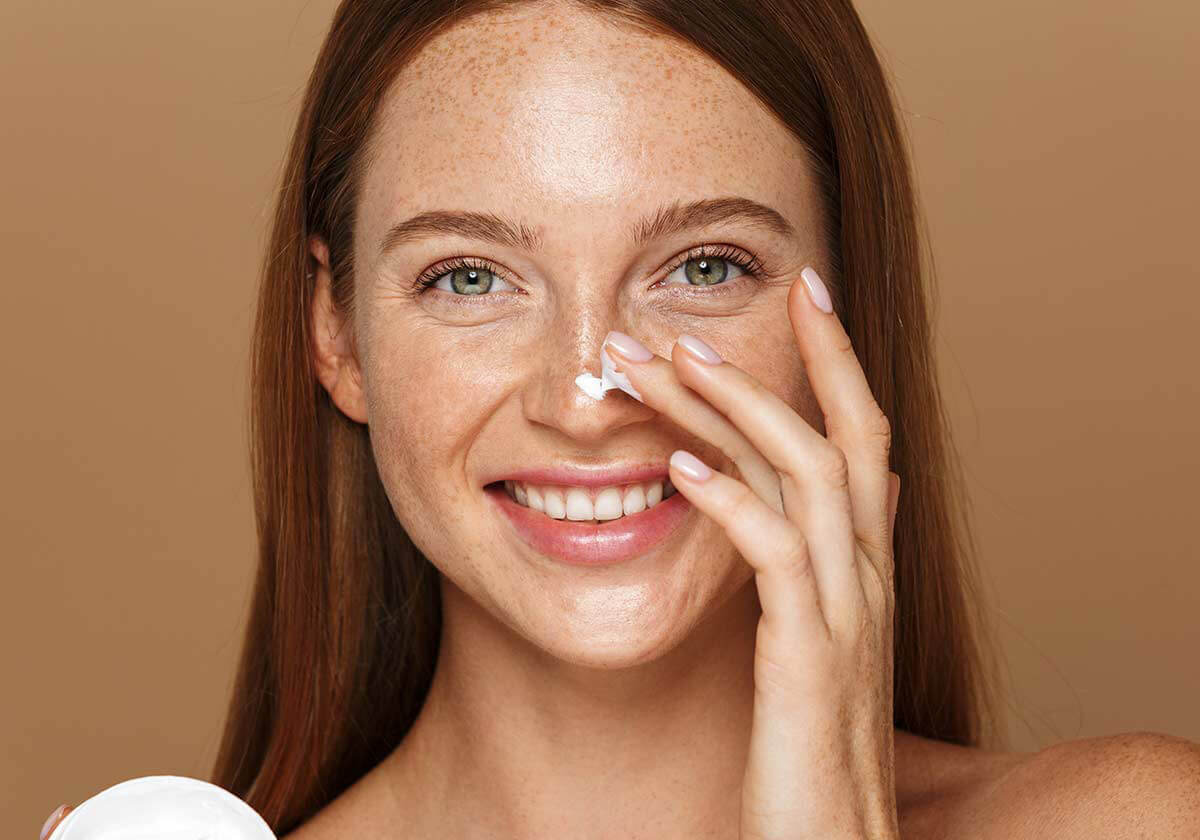
The Importance of Skin Hydration
Looking for the secret to glowing skin? Keep it hydrated.
Hydrated skin is essential for maintaining a healthy complexion.
When your skin is well-hydrated, it looks younger and more radiant. That's because plump, juicy cells reflect light better, and this is what gives you that sought-after glow.
So how do you hydrate your skin? Keep reading for the tips to keep your skin hydrated to achieve beautiful, radiant skin.
What is skin hydration?
Your skin functions best when it is adequately hydrated.
Skin hydration is the process of keeping your skin cells plump and full of water. Proper hydration leads to a softer, smoother complexion and a youthful appearance.When you moisturize, you help your skin retain its existing moisture. Hydration goes beyond simply moisturizing the skin; it involves adding water to its moisture barrier.

Dehydrated skin can be either dry or oily; what it lacks is water. Without enough water, your skin will look dull and feel tight. It's also more susceptible to breakouts, congestion, and inflammation.
To look your best, ensure your skin's adequately hydrated. The moisture levels in your skin affect its appearance and texture. Sufficient water content in your skin makes it look softer and smoother. In other words, well-hydrated skin looks younger.
What is TEWL?
The natural skin barrier is the outermost layer of the epidermis (aka stratum corneum), and its main purpose is to protect the body from the environment. This barrier layer comprises dead skin cells, oils, and other substances that form a barrier between the body and the outside world.
The skin's barrier helps keep harmful bacteria and other irritants from entering the body and helps keep hydration in.
Transepidermal water loss (TEWL) is the loss of water through the stratum corneum (outer layer), and it can occur when the barrier function is damaged or weakened.
When water evaporates, you experience TEWL, which can lead to dryness, itching, and other problems.
There are several ways to help keep the skin barrier healthy so that your skin's water content is high and moisture loss is low. (To learn more, please read this article to learn more about your skin's barrier and how to repair it.)
How to tell if your skin is dehydrated or dry
When it comes to skincare, hydration is key. But how can you tell if your skin's dehydrated or simply dry? Although dehydration and dryness are common, they have different causes and effects.
Dehydration occurs when the body doesn't have enough water, causing your complexion to appear sunken and dull. On the other hand, dryness is caused by a lack of oil, resulting in dry, cracked skin.
Here are some ways to tell if you're dehydrated or dry:

You can also gently pinch the top layer of your skin. If it does not immediately snap back, that's another sign you need to up your hydration game.
If you're unsure whether you're experiencing dehydrated or dry skin, consult a board certified dermatologist for an evaluation.
What causes dehydrated skin?
Several factors can contribute to dehydrated skin, including hot showers, indoor heating, and what you eat. Elements from your outside environment such as sun exposure, wind, and cold temperatures can also cause your skin to lose moisture.
Low moisture levels can be caused by factors such as not drinking enough fluids or sweating excessively. Additionally, certain conditions - such as atopic dermatitis, eczema, and psoriasis - can cause dryness and irritation.
How to hydrate your skin
Luckily, there are a few easy ways to help retain moisture. Here are six of our favorites:
1. Apply a hydrating face cream
Creams with hydrating properties will add moisture and prevent your barrier from losing water.

Choose a product that is proven to hydrate and suitable for your skin condition. Apply it every day after cleansing as part of your skin care routine.
Remember, even oily skin needs to be hydrated (just because it's only doesn't mean it has enough water to keep it hydrated). And if it becomes dry, it will try to produce more oil, which can clog pores and lead to breakouts.
PRO TIP: Apply on slightly damp skin to help seal in additional hydration.
2. Exfoliate regularly
Exfoliating helps to remove dead skin cells that can block pores and prevent hydrating products and moisturizers from working effectively. Use an exfoliating cleanser or scrub in your skincare routine 1-2 times per week for best results.
3. Drink plenty of water
Drinking water is the simplest and most effective way to stay hydrated from the inside out. Make sure to drink eight glasses of water per day or more if you are active or live in a hot climate.
4. Treat yourself to a face mask
A face mask is a simple and convenient way to give your skin a much-needed boost of hydration. When used once a week, a mask can help to restore hydration, improve texture, and give you a healthy-looking complexion.
5. Maintain a healthy skin barrier
The skin barrier is a thin layer of oil that helps keep water in and irritants out. You can help maintain a healthy barrier by using a moisturizer daily and avoiding harsh soaps and cleansers.
6. Use a humidifier
A humidifier can help to add moisture to the air, which will, in turn, help to keep your skin hydrated. A humidifier in the summer months can also help alleviate symptoms of seasonal allergies. And in the winter months, it adds moisture to your home since heating systems can dry the air.
How to Prevent Dehydrated Skin
1. Avoid hot showers
Hot water strips away your skin's natural oils, which can lead to dryness and irritation. Opt for shorter, cooler showers with lukewarm water to help limit water loss and keep moisture in.
2. Skip the harsh cleansers
Harsh soaps can strip away natural oils from the skin, leading to dryness.
If your skin feels tight after cleansing, that's an indicator it's been stripped of oils and is likely dehydrated. Instead, wash your face with a gentle cleanser suitable for your skin type and use it daily.
3. Limit your alcohol intake
Alcohol consumption can lead to dehydration. If you do drink alcohol, make sure to have a glass of water in between drinks.
4. Cut back on Salty foods
While a small amount of salt is necessary for the body to function properly, too much salt can lead to dehydration and dry skin. In addition, salt inhibits the production of the oils that help to keep cells hydrated.

What are some good hydrating active ingredients?
Many hydrating ingredients can help you maintain your skin barrier function. When choosing products, it is important to look for those containing these and other hydrating ingredients.
Hyaluronic acid
Hyaluronic acid occurs naturally in the body and helps bind water to the skin. This super hydrator is known for its anti-aging, moisturizing, and plumping power. Hyaluronic acid comes in different sizes, all used in Kadalys products.
Glycerin
Glycerin attracts water, allowing it to protect your skin from dehydration. Kadalys Comforting Cream contains a rich combination of yellow banana, hyaluronic acid, and glycerin that's proven to keep skin hydrated for 24 hours.
Plant-based oils
Rich in nutrients, plant-based oils can help improve the skin's overall health. One of the best ways to hydrate your skin is to use plant-based oils. Unlike water-based products, which can evaporate quickly, oils form a protective barrier on the skin that helps moisture retention.
Which oils are good for hydrated skin?
Here are some of the oils that can be used to help hydrate the skin. For best results, choose an oil suitable for your skin type and apply it after cleansing and toning your face.
Incorporating one of these oils into your skincare routine can help keep your skin soft, supple, and glowing.
Banana Oil
Banana oil helps strengthen the skin barrier, which helps keep the skin hydrated and prevent water loss.
Banana oil is known to help reduce dryness, redness, and itching. Banana oils are also a good choice for people who have eczema or psoriasis.

Additionally, banana oil is rich in vitamins A, B, and E, all known to be beneficial for the skin.
Squalane
Plant-based Squalane is derived from olives, sugarcane, or rice bran. A helpful ingredient for keeping skin hydrated, this oil helps lock in moisture and prevent water loss from the skin.
Olive oil is packed with antioxidants and fatty acids that help to nourish the skin. It is also non-greasy and easily absorbed into the skin.
Prickly pear seed oil
Prickly pear seed oil is an antioxidant oil. It provides softening, moisturizing and nourishing benefits for dry and sensitive skin.
Coconut Oil
Coconut oil adds moisture to dry skin since it is naturally rich in unsaturated fatty acids. This composition allows it to nourish and soften skin deeply.
How do nutrition and diet play a role in keeping your skin hydrated?
Proper hydration is essential for maintaining a healthy, youthful-looking complexion. While drinking plenty of water is always important, what you eat can also affect how hydrated your skin is.
Hydrating foods, such as fruits and vegetables, can help keep you hydrated from the inside out. In addition, certain vitamins and minerals are essential for optimal skin health. For instance, vitamin C helps produce collagen, which helps keep the skin firm and elastic. (See our favorite foods for glowing skin.)
Furthermore, foods rich in essential fatty acids, such as salmon and avocados, can help to lock in moisture. Omega-3 acids also help maintain the skin’s natural barrier, preventing moisture loss.

On the other hand, diuretic foods and beverages, such as caffeine and alcohol, can dehydrate the skin by causing the body to lose water.
Therefore, it is important to know how your diet affects your skin's hydration levels. Eating a balanced diet and drinking plenty of water can help keep your complexion glowing.
The Bottom Line
The skin is the largest organ in the human body and plays a vital role in protecting you from the elements.
Your skin requires hydration to function properly and to maintain a healthy, youthful-looking glow.
Drinking plenty of water and eating a healthy diet are two great ways to stay hydrated from the inside out.
In addition, using a quality facial oil or moisturizer can help lock moisture in and prevent dryness.
By taking care of your skin and providing it with the hydration it needs, you can help keep it looking its best.


